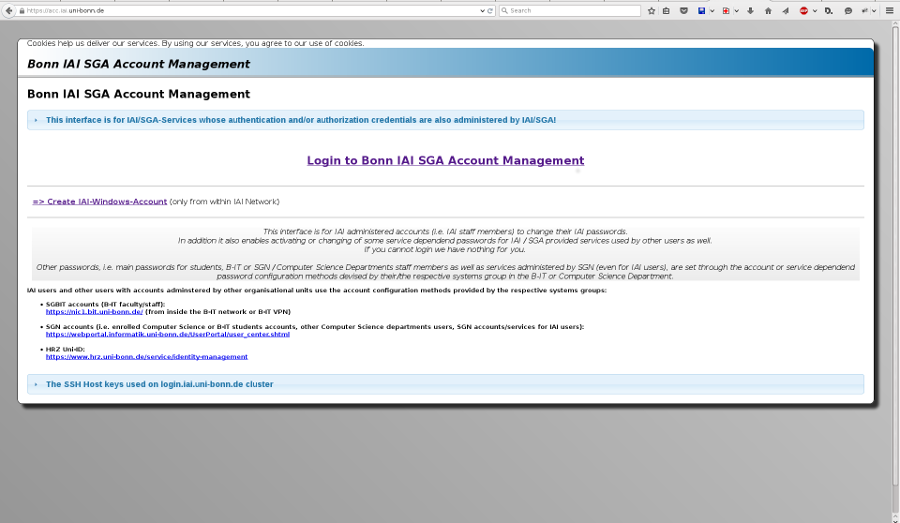Linux
Beforehand: To take advantage of the below mentioned services, an account of the Department is necessary.
Please ensure, that you have installed the latest driver for your networkcard, especially before making requests.

1. Create OpenVPN certificate
First you have to create an OpenVPN certificate, to do this go to https://acc.iai.uni-bonn.de. There you select the tab "IAI PNAS VPN". Next, enter a password, download the individual .zip file and then unpack it.
2. Install and configure OpenVPN client
Next, an OpenVPN Client must be installed to etablish a VPN connection. As a rule, the OpenVPN Client is available in the package manager of all common Linux distributions. Under Ubuntu, you can install it with e.g. "sudo apt-get install openvpn".
You can then etablish a connection, for which you need the <username>.ovpn file, which was extracted from the downloaded directory.
First, however, you have to connect to the WLAN access point "802.1X" .
The command for etablishing the connection: sudo openvpn --config /path/to/configfile/<username>.ovpn, which first asks for the IAI ID and password and then the VPN password.
This command must always be executed as root otherwise no connection will be established.
